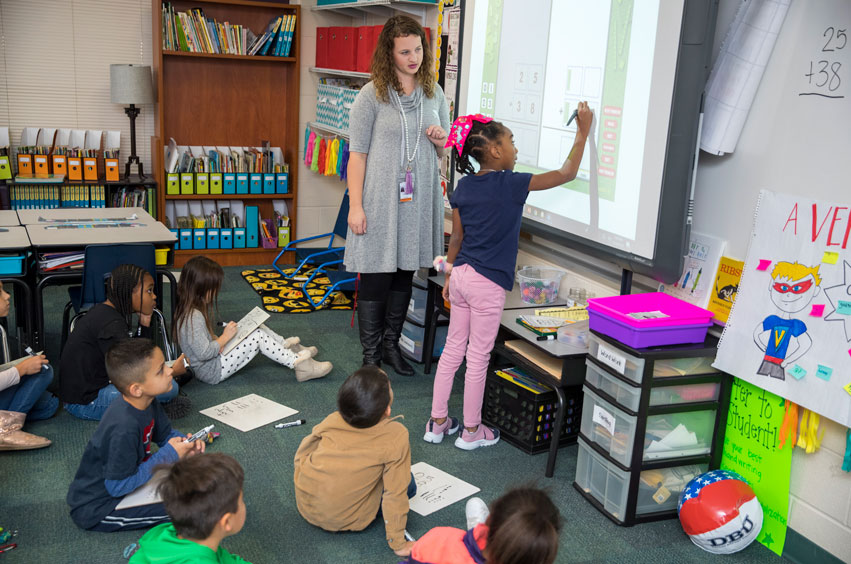DBU Launches Master of Science in Learning Technologies Program
This article is over six months old and may reference former titles for DBU faculty or staff, discontinued programs, or other details that have since changed. If you have any questions, please contact us at news@dbu.edu, or (214) 333-5172.

In 1998, DBU offered its first online class for eleven students. Today, thousands of students are enrolled in online or hybrid classes, and numerous bachelor's and master's degrees can be completed entirely online.
The merging of teaching and technology is becoming increasingly complex with newer platforms for digital communication becoming available all the time. It can be challenging for professors of various disciplines, who did not grow up in the digital age and whose education may have been more focused on content than delivery, to navigate the rapid changes in technology and use them effectively in both traditional and virtual classrooms. "Many times the leaders of technology and the leaders of teaching and learning do not speak the same language," says Karla Hagan, program director of DBU's new M.S. in Learning Technologies.
Yet as today's younger generations live with digital technology every day, this makes it vital for universities to adapt in ways that connect with students and in ways they take in information. "The forward movement of technology will not wait for us and is certainly not going anywhere. We must, as instructional leaders, utilize technology's strengths to breed better teaching and learning experiences for all."
DBU's Master of Science in Learning Technologies is a 30-hr, STEM degree program designed to prepare students to be successful servant leaders in the education and corporate sector. "Graduates will apply knowledge that promotes the success of every student by ensuring that each of those students understands and harnesses the power of computing and integrating technology in their personal, academic or professional lives," says Professor Hagan. "Specifically, it will prepare them to become designers, collaborators and facilitators of technology and the integration of that technology across all disciplines."
The MSLT degree program can be completed via two tracks: Instructional Design or Educational Technology. The instructional design track is geared towards the higher education or business training and development industries, while the educational technology track is geared towards the K-12 education space.
Among the courses offered in the degree program include "Emerging Technologies," "Technology Integration in Curriculum," and "Teaching and Learning in the Online Classroom." The degree prepares graduates for a variety of professional and academic support services such as: Educational Technology Specialist; Director of Instructional Technology; Instructional Designer and Trainer; Curriculum Technology Manager; and Director of Online Learning.
"I am excited to lead this program," says Hagan, "as well for the opportunities it brings to support educational leaders as they become design thinkers and creators utilizing the technology available."
Dr. Michael Whiting is an Assistant Professor of Christian History and Leadership in the Cook School of Leadership at Dallas Baptist University. He also served as the Director of Written Content in University Communications.








